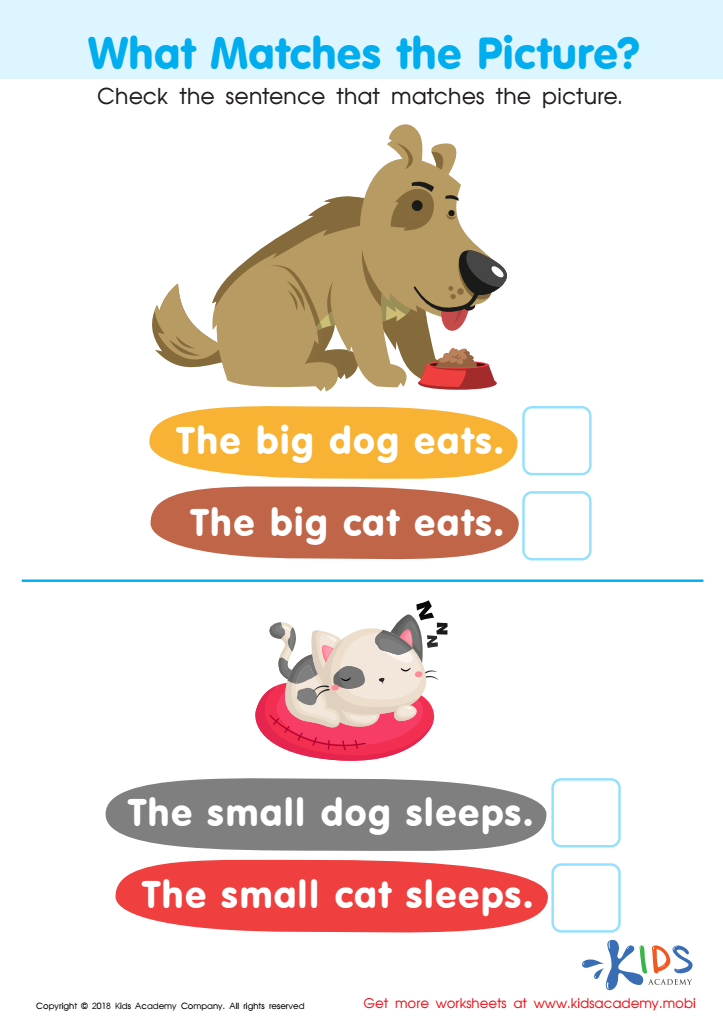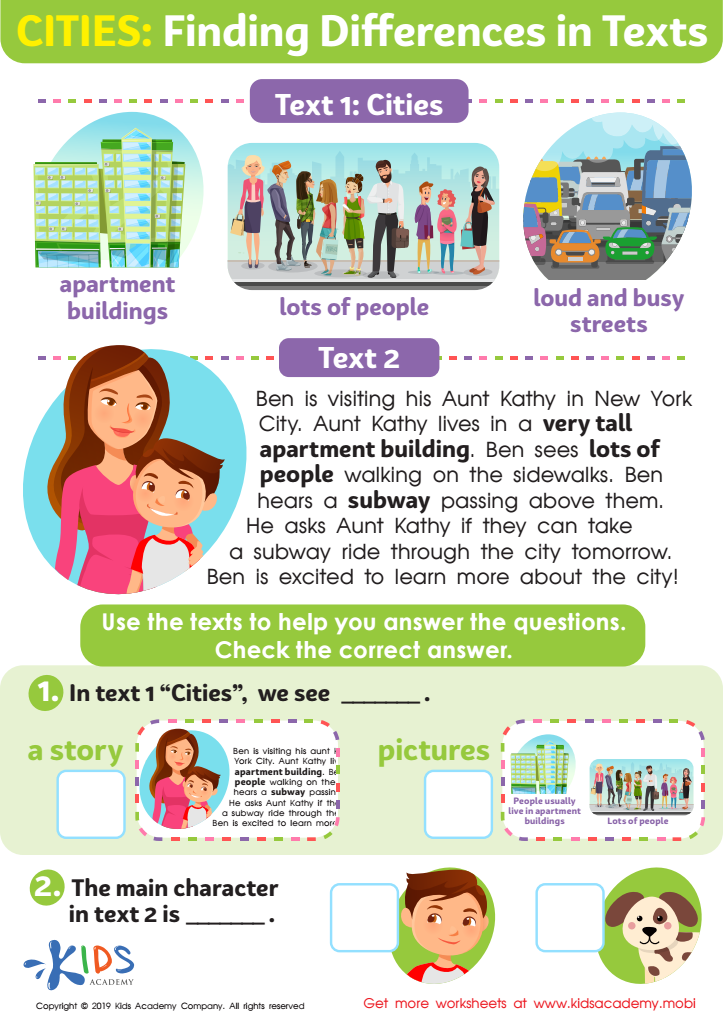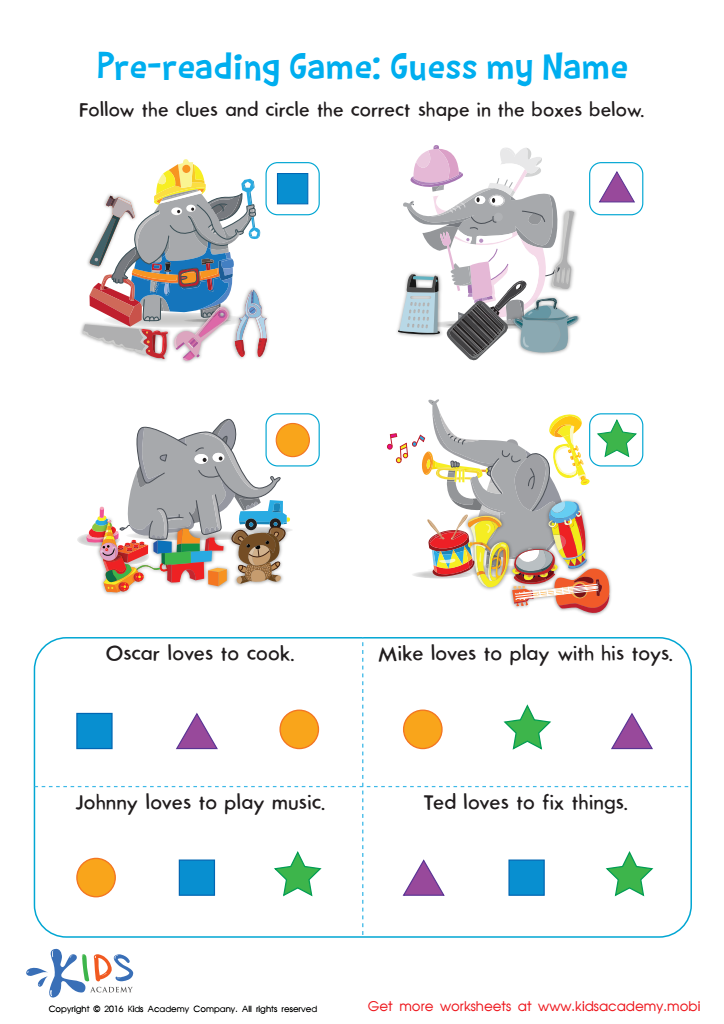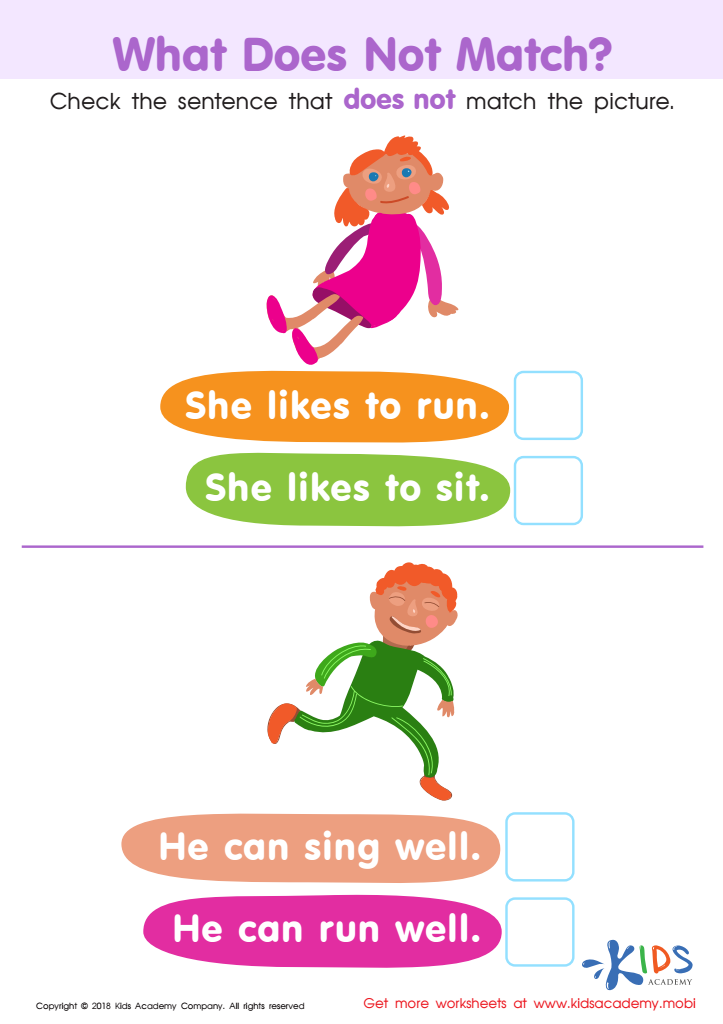Cognitive Development Reading Fiction Worksheets
5 filtered results
-
From - To
Enhance your child's cognitive development with our engaging Reading Fiction Worksheets! Designed for early learners, these worksheets foster critical thinking, comprehension, and memory skills through captivating stories and structured activities. Each worksheet challenges young readers to analyze characters, explore plot elements, and make predictions, promoting deeper understanding and imaginative thinking. Whether used in the classroom or at home, these resources are perfect for developing essential literacy skills while encouraging a love for reading. Dive into a world of creativity and learning with our thoughtfully crafted worksheets that turn reading time into an exciting adventure! Ideal for teachers and parents alike!


Rhymes in Poems Worksheet


What Matches the Picture? Worksheet


Cities: Finding Differences Worksheet


Pre Reading Worksheet Guess My Name


What Does Not Match? Worksheet
Cognitive development is crucial in early education, and reading fiction plays a vital role in this process. For parents and teachers, understanding the importance of fiction can significantly enhance children's learning experiences.
Fiction stimulates imagination and creativity, encouraging children to think critically and explore diverse perspectives. When kids engage with characters facing dilemmas or navigating complex worlds, they learn to empathize and understand different emotions and motivations. This emotional intelligence is key for social interactions and relationship building.
Moreover, reading fiction contributes to vocabulary expansion and language skills. Exposure to varied sentence structures and unfamiliar words in fictional narratives equips children with the tools necessary for effective communication. This enhances their overall literacy, which is foundational for academic success.
Additionally, fictional stories often include moral lessons and thematic elements that provoke deeper thinking about ethics, justice, and human behavior. Discussing these themes with adults can lead to meaningful conversations that challenge children’s thinking and help develop reasoning skills.
In summary, fostering a love for reading fiction not only enhances cognitive abilities but also builds essential social and emotional skills. Parents and teachers play a crucial role in nurturing this aspect, leading to well-rounded, intellectually curious, and empathetic individuals.

 Assign to My Students
Assign to My Students
















